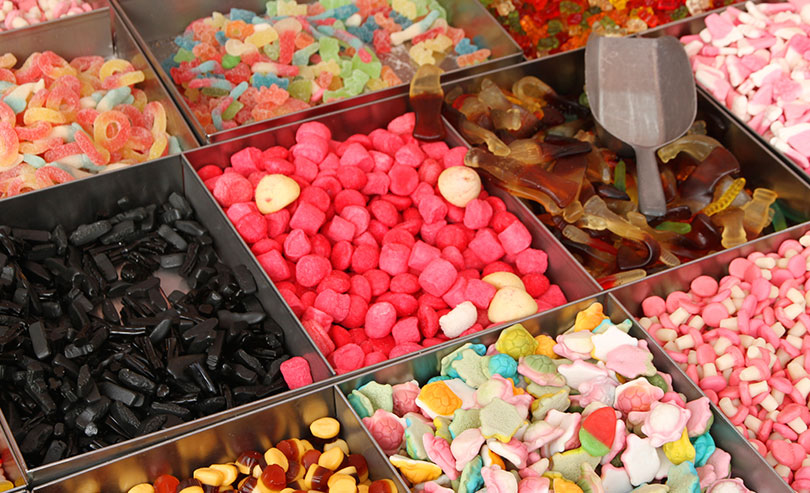Foods to Avoid for IBS
Affecting up to one in five Americans, IBS can cause a variety of digestive problems, sometimes severe enough to interfere with day-to-day life. When it comes to dietary changes, recent studies point out that adopting a low FODMAP diet can help relieve symptoms of IBS.
A major problem among IBS sufferers is that they have troubles digesting foods that contain certain carbohydrates. These are short chain carbohydrates collectively known as FODMAP (Fermentable Oligo-saccharides, Di-saccharides, Mono-saccharides And Polyols).
These carbs are found in many foods, but some will have low content while others will be “high" in FODMAPs. Foods containing high amounts of FODMAPs aren’t absorbed properly in the small intestine and therefore are quickly fermented by bacteria in the gut. This leads to the bloating, changes in the bowel movement and abdominal pain associated with IBS.
An increasing number of studies suggest now that restricting FODMAPs from the diet help improve symptoms of IBS, as well as other conditions such as inflammatory bowel disease (IBD). Based on low FODMAP diet, the following foods should be eliminated from the diet because they are “high" in FODMAPs.
1. Foods High in Fructose
High fructose foods include fruits such as apples, pears, mango, cherries and watermelon. Fruit juices, honey and dried fruits should also be avoided. Among vegetables, asparagus, artichoke and sugar snap peas have high content of fructose.
As the name implies, high fructose corn syrup (HFCS) also belongs to this group of foods. HFCS is a sweetener used in many processed foods and drinks – including soda, candies, cakes, salad dressings, macaroni and cheese, frozen pizza, ketchups, some yogurts, breads, cereal bars and more. Always check the label for HFCS.
Photo Credit: ValentynVolkov / istockphoto.com
2. Lactose
Products containing lactose are known to cause problems in IBS sufferers. Therefore milk, yogurts (regular or high fat) and soft cheeses such as ricotta, cottage cheese and cream cheese should be avoided. These dairy products are often included in cakes, custard, ice-cream, frozen yogurts, and many other dishes.
Photo Credit: vikif / istockphoto.com
3. Foods Containing Fructans and Galacto-Oligosaccharides
These are found in abundance in grocery stores, so again, reading the labels is important. This group include rye and rye products (bread, crackers) and wheat and wheat products (bread, pasta, couscous, wheat bran). Wheat is hiding in most processed foods, being included even in artificial and natural colors and preservatives, vegetarian meals, soy sauces and food starches. Rice crackers or oat meals also include often wheat, even if they appear to be made of plain rice. Peaches, persimmons, watermelons, beans, lentils, onions and garlic are also high in fructans. Pay attention to inulin (often labelled as “fiber" in protein shakes and other nutritional products) - it is another ingredient should you should avoid.
Photo Credit: ValentynVolkov / istockphoto.com
4. Foods Containing Sorbitol and Mannitol (Two Sugars Known As "Polyols")
Fruits like apples, pears, apricots, nectarines, plums and blackberries are rich in sorbitol, while watermelon, cauliflower, snow peas and mushrooms contain high amounts of mannitol. Other foods high in polyols are sugar free gum, candies and chocolates.
Photo Credit: tashka2000 / istockphoto.com
5. Moderate FODMAP Foods
These foods are not particularly high in FODMAPs, but should be consumed in lower amounts. Moderate FODMAP foods include avocados, cherries, grapefruit, lychee, pomegranate, beets, Brussels sprouts, cabbage, okra, corn, sweet potatoes, almonds and hazelnuts.
Photo Credit: kjekol / istockphoto.com
6. Alcohol
No, it’s not technically a food, but alcohol should be eliminated from your diet as well, as it can cause multiple problems. It can aggravate common IBS symptoms such as abdominal pain and discomfort, bloating, diarrhea, poor absorption of nutrients and food sensitivities. Alcohol can also create new digestive issues including heartburn. Non-alcoholic beverages such as fruit juices, soda and coke should also be avoided because of the high sugar content. Healthier options include water with a slice of lemon or cucumber, coconut water and smoothies with low FODMAP fruits and veggies.
Other Considerations
For best results you should seek professional advice from a dietitian. Generally speaking, the recommendation would be to restrict problematic foods for six to eight weeks until you notice significant improvement in the IBS symptoms. A dietitian will advise which foods to eliminate and when to start reintroducing them. The goal is to gradually increase the level of intake you can tolerate. The low FODMAP diet is temporary diet, not a lifetime diet.
It is worth testing for other food sensitivities, since they are so common in IBS. Some foods may be low FODMAP but cause symptoms. These foods should also be avoided. Food sensitivities are frequently associated with environmental allergies, which can be also tested by various lab tests and treated accordingly.
Improving your diet, along with other lifestyle changes, can help you better your manage IBS.
Read more about avoiding high FODMAP foods over on NewLifeOutlook.
[youmaylike_amp]